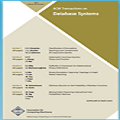Task-oriented dialogue systems (TODS) are continuing to rise in popularity as various industries find ways to effectively harness their capabilities, saving both time and money. However, even state-of-the-art TODS are not yet reaching their full potential. TODS typically have a primary design focus on completing the task at hand, so the metric of task-resolution should take priority. Other conversational quality attributes that may point to the success, or otherwise, of the dialogue, may be ignored. This can cause interactions between human and dialogue system that leave the user dissatisfied or frustrated. This paper explores the literature on evaluative frameworks of dialogue systems and the role of conversational quality attributes in dialogue systems, looking at if, how, and where they are utilised, and examining their correlation with the performance of the dialogue system.
翻译:以任务为导向的对话系统(TODS)随着各行业寻找有效运用自身能力的方法,节省时间和金钱而继续受到欢迎,但即使是最先进的TODS也还没有充分发挥其潜力。 TODS通常以完成手头的任务为首要设计重点,因此任务解决的衡量标准应优先处理。 可能忽略其他对话成功与否的谈话质量属性。这可能导致人与对话系统之间的互动,使用户感到不满或沮丧。本文探讨了关于对话系统评价框架的文献,以及对话系统中对话质量属性的作用,审视这些属性是否、如何和在何处得到利用,并审查它们与对话系统业绩的相互关系。




